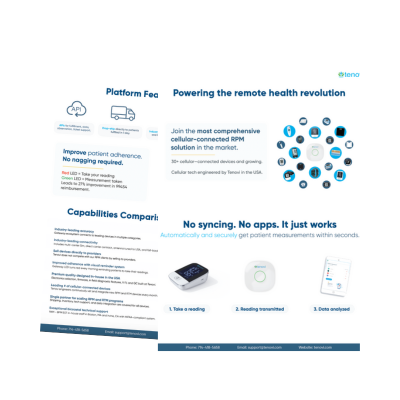As remote patient monitoring (RPM) becomes an increasingly integral part of modern healthcare, remote patient monitoring careers careers in this field have surged. This article highlights five high-demand job roles that are shaping the future of RPM technology. Please keep in mind that job titles and responsibilities may vary by organization, but the core skills and focus areas remain consistent across the industry.
Remote Patient Monitoring Nurse
Remote patient monitoring careers include the role of a remote patient monitoring nurse who is responsible for monitoring patients’ health and vital signs using RPM technology. RPM nurses typically work remotely, monitor patients’ health conditions, and alert healthcare providers if any concerning changes occur. Specifically, an RPM nurse’s duties may include training on RPM devices, monitoring patient vital signs, analyzing patient data for trends and patterns, and communicating with healthcare providers to ensure appropriate care.
RPM nurses are a liaison between patients and healthcare providers. They are integral in ensuring that patients receive timely and appropriate care. In addition, they can educate and support patients and caregivers, helping them understand and effectively manage their health conditions with RPM technology. Exceptional remote patient monitoring nurses share a combination of clinical knowledge, technical proficiency, communication skills, critical thinking abilities, adaptability, and empathy.
RPM Technical Support Specialist
Technical Support specialists advise patients on the proper usage of RPM devices. To facilitate this process, remote patient monitoring careers in technical support are essential. Technical support specialists onboard and offer ongoing support throughout a patient’s RPM care journey. In addition, they are responsible for maintaining proper HIPAA compliance and managing and filing documentation.
Technical support jobs are also available with remote patient monitoring service companies that provide RPM onboarding, ensuring patients are trained and equipped to use the technology effectively.
Remote Patient Monitoring Specialist
A remote patient monitoring specialist plays a vital role in monitoring vital sign data. They monitor a high volume of medical alert alarms. These positions require formal education as a registered nurse or health care aide or equivalent experience (RN, LVN, LPN). Furthermore, RPM representatives respond to relative priorities of situations and health professionals per established procedures. For example, contacting patients to assess an alert and determine the next steps in the call process.
Additionally, RPM specialists answer routine inquiries and relay information and messages to and from health professionals, agencies, and departments requiring notification. Maintaining access to and security of sensitive materials and explaining services are all part of the job. Therefore, an RPM specialist must be detail-oriented, work well under pressure, and be able to handle a high volume of medical alert alarms.
RPM Care Manager
An RPM Care Manager is a qualified healthcare professional who builds trusting relationships with patients to drive positive health behavior change. This remote patient monitoring career offers the opportunity to proactively monitor, educate, and coach patients on a plan for better health. The RPM Care Manager is vital in educating patients on managing their acute or chronic medical conditions, maintaining health and wellness, and avoiding emergency room utilization and hospitalization. Encounters with patients are often conducted via a desktop or mobile app remotely monitoring physiological markers like blood pressure, blood glucose, weight, and more.
This role involves providing preventive health and disease management education and coaching, scheduling and performing regular telehealth visits, and documenting visit findings in software platforms. In addition, responsibilities include leading collaborative care planning sessions to define patient health goals, managing alerts, and answering routine questions.
To excel as a Remote Patient Monitoring Care Manager, you should have excellent communication and interpersonal skills, the ability to develop patient-centric goals and action plans, and experience working with patients remotely. Additionally, a strong understanding of chronic disease management and preventive health and a passion for improving patient outcomes benefit the position. A nursing or related degree and relevant experience in healthcare are often preferred.
Remote Patient Monitoring Technical Consultant
Remote patient monitoring careers include the position of technical consultant. This role involves partnering with a team of clinical, sales, and service partners to support business growth. In addition, technical consultant positions provide recommendations tailored to client needs.
The role involves managing internal and external resources, coordinating resources and tasks, and managing budgets effectively. It also requires testing networks, diagnosing and resolving electronic, network, and mechanical concerns, and building and integrating solutions. This position requires technical expertise, project management skills, and a focus on customer service.
Remote Patient Monitoring Careers: Key Points
Remote patient monitoring careers are increasingly popular due to the growing demand for remote healthcare services and technological advancements. RPM allows patients to monitor their health conditions from their homes, while healthcare providers can remotely monitor their progress and provide timely interventions. High-demand remote patient monitoring careers include RPM specialists, care managers, technical support, consultants, and nurses.
All these roles involve securely handling health data, needs assessment, educating patients, and communicating with healthcare partners. RPM careers offer flexible work options and can impact patients’ lives meaningfully. With healthcare shifting towards more virtual care, remote patient monitoring careers are increasingly important in providing quality care to patients.
Outsourcing Remote Patient Monitoring
The Centers for Medicare and Medicaid Services (CMS) acknowledges the positive impact of remote patient monitoring on healthcare outcomes. To encourage more healthcare organizations to adopt RPM, Medicare revised CPT 99457, allowing services that don’t require a physician’s expertise to be outsourced to third-party vendors.
This revision eliminates the need for physicians to increase their workload or hire additional staff. Instead, they can now outsource RPM services to third-party vendors with qualified clinical staff capable of delivering them.
To learn more about how Tenovi can help, check out our website to see whom we serve and request a free demo. Our platform provides a superior RPM experience for patients, physicians, and your team.


